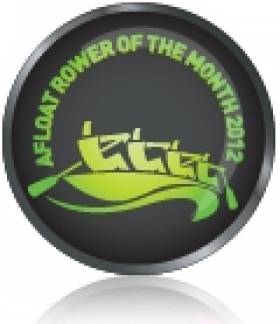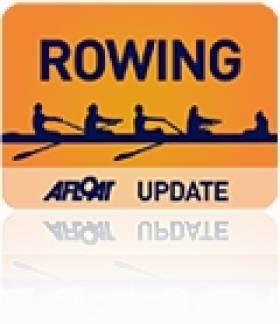Displaying items by tag: Sanita Puspure,
# ROWING: Sanita Puspure is the Afloat Rower of the Month for May. The 30-year-old gave Ireland a place in the rowing programme at the Olympic Games in London with a characteristically gutsy performance which placed her fourth in the single scull at the Olympic Qualifier in Lucerne. This was the final Olympic place on offer, and she won a battle in the closing stages with Iva Obradovic of Serbia to clinch the spot. She is the deserving and popular winner of the Afloat Rower of the MonthRower of the Month awards:
The judging panel is made up of Liam Gorman, rowing correspondent of The Irish Times and David O'Brien, Editor of Afloat magazine. Monthly awards for achievements during the year will appear on afloat.ie and the overall national award will be presented to the person or crew who, in the judges' opinion, achieved the most notable results in, or made the most significant contribution to rowing during 2012. Keep a monthly eye on progress and watch our 2012 champions list grow.
#ROWING: Sanita Puspure was Ireland's success story on the first day of the World Cup Regatta in Belgrade today. She won a battle with Norway’s Tale Gjoertz to finish second behind local woman Iva Obradovic in her heat and qualify directly for the A/B Semi-Final of the single scull.
The three other Ireland crews in action all face into repechages. Mark O’Donovan and Niall Kenny finished fourth in their heat of the lightweight double sculls, over 10 seconds behind the winners, China. In the lightweight single sculls, Michael Maher finished fifth in his heat and Claire Lambe second in hers.
World Cup Regatta, Belgrade – Day One (Irish interest)
Men
Single Scull – Heat Two (Winner to A/B Semi-Final): 1 Britain (A Campbell) 6:57.43.
Lightweight Double Scull – Heat Four (Winner to A/B Semi-Finals; rest to Repechages): 1 China (C Wu, F Zhang) 6:22.40, 2 Greece 6:26.19, 3 Austria Four 6:32.40, 4 Ireland (M O’Donovan, N Kenny) 6:32.96, 5 Austria Two 6:37.47.
Lightweight Single Scull – Heat One (First Three to A/B Semi-Final; rest to Repechage): 1 France Two 7:07.89, 2 Norway Three 7:11.01, 3 Greece 7:11.15, 4 Egypt 7:18.82, 5 Ireland (M Maher) 7:24.05.
Women
Single Scull – Heat Three (First Two Directly to A/B Semi-Finals; rest to repechages): 1 Serbia (I Obradovic) 7:29.83, 2 Ireland (S Puspure) 7:34.28; 3 Norway (T Gjoertz) 7:34.70, 4 Lithuania (D Vistartaite) 7:58.31, 5 Austria (L Farthofer) 8:01.66.
Lightweight Single Scull – Heat One (Winner to A Final; rest to Repechage): 1 Britain (K Twyman) 7:49.69; 2 Ireland (C Lambe) 7:54.91, 3 Austria Two 8:00.09, 4 Croatia 8:00.85.

























































